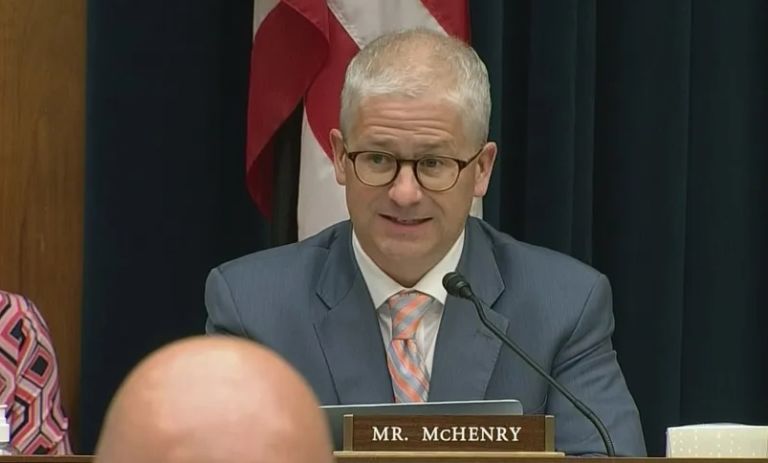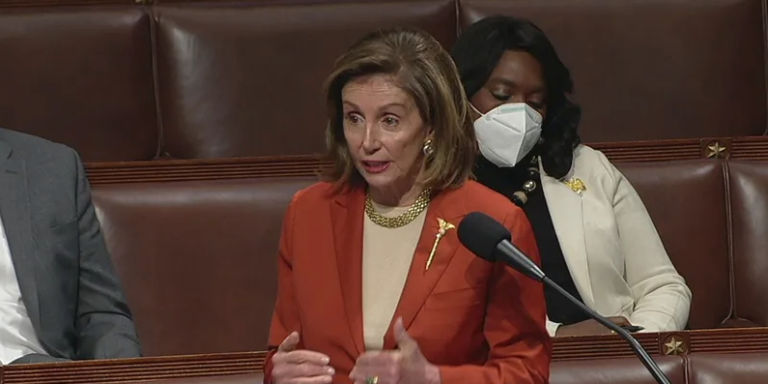In the shadow of their impeachment vote last month, the U.S. House of Representatives voted on and passed a bill that got few headlines, primarily because it will likely go nowhere in the Senate. Most of the unread headlines read something like the one found in Roll Call, “House Passes Restored SALT Deduction Bill.” The acronym, SALT, stands for “state and local taxes.”
In President Trump’s 2017 tax cut and reform legislation, deductions for state and local taxes were capped at $10,000. Before this, there was no limit on the amount of state and local property and income taxes paid by individuals, as opposed to businesses, that could be deducted from taxable income at the federal level. The cap mostly affected individuals living in wealthier states controlled by Democrats, including New York, Connecticut, and California, with relatively high property and income taxes.
Despite the fact that this was clearly a targeted and discriminatory tax increase, it was supported by nearly all conservatives. Even libertarians, such as those at the Tax Foundation and writers at Reason.com, have shown unequivocal support for the cap on rather unusual grounds for free marketeers, that is, that an unlimited deduction is regressive. Oddly, the majority of commentators did not address the issue of whether these deductions (or the cap placed on them) were consistent with sound tax policy or any notion of tax fairness that might be consistent with libertarian ethics.
The fact is that both sound economics and sound notions of fairness suggest that the SALT deductions should be restored in full. But, unfortunately, the legislation passed by the House in December doesn’t do that and deserves the negative reception that it will receive in the Senate.
First of all, the legislation does not eliminate the $10,000 cap on SALT deductions as many of the headlines and much of the commentary suggest. What the bill does is grant a two-year reprieve from the cap. In 2020 and 2021, the cap won’t apply. In 2022, it returns. And what is the price of the two-year reprieve? The pre-2017 reforms’ top marginal income tax rate will be restored. That is, the top rate will be raised from 37 to 39.6 percent, and not just for two years but permanently. This clearly implies that the House Democrats are not doing this as an attempt to restore the SALT deductions but are using the SALT deductions as a Trojan horse to raise the top rate back to Obama-era levels. Amazingly, this tradeoff seldom has been reported in the media, and when it has, it has been buried deep in the story. Even the Reason article cited above, for example, doesn’t mention it until the sixth paragraph.
So why should the cap be repealed? Why should state and local taxes be fully deductible from federal taxes? In an earlier and more extensive article that I wrote for Carolina Journal in 2017, when the issue was originally being debated, I opened by asking, “should you ever be taxed on “income” that is not, in any meaningful sense, yours?” The answer, from the perspectives of both simple fairness and sound economics, is an unequivocal no.
And the fact is that the portion of your income that goes to income and property taxes at the state and local level is not money that is legally yours to allocate as you see fit. The level of government, state or local, that receives it ultimately has legal claim to it for its purposes. This means that, by taxing income used to pay state and local taxes, the federal government is taxing people not on their income but on someone else’s: either the income of the state or local government. It is not clear how this, from any perspective, could be called “just taxation.” Certainly, it cannot be considered as such from any sense of justice advocated by libertarians or conservatives.
As far as the economics go it is widely recognized as a sound principle of tax analysis that only income used for consumption purposes should be taxed. This is the argument behind instituting a national sales tax in place of an income tax. Note that under a national sales tax, state and local taxes would not be part of the taxable base. The functional equivalent of a sales tax, using consumption income as the base rather than sales, is what is known as the consumed income tax or sometimes referred to as the “inflow outflow tax.”
Under a consumed income tax system, any income that is not used for consumption purposes is deducted from the tax base. As the late guru of supply-side tax analysis and architect of Ronald Reagan’s 1981 tax cuts, Dr. Norman Ture’, stated in his description of the basic economic principles of taxation, “People should be taxed only on the income over which they retain control and of which they enjoy the benefit.” He concluded that “all payroll and state and local taxes would be deductible as income over which the taxpayer has lost control and transferred to others.”
The bottom line is that the taxation of taxes cannot be justified, certainly not from a free-market or libertarian perspective. But, inexplicably, these arguments are totally ignored by the libertarian and conservative supporters of the cap. Possibly in an attempt to rub the left’s noses in their own hypocrisy, they instead focus on the regressive nature of the deduction. The Reason article cited above is titled, “Eat the Rich: House Democrats Plan to Pass Huge Tax Break for Wealthy Homeowners.” Basically, the article focuses almost exclusively on the benefits that high-income homeowners would receive. Even though Reason is probably the premier libertarian website in the country, they fail to say a word about the impact of the cap on liberty or how it squares with the economics of taxation.
Every cent of taxes paid at the state and local levels should be deductible on federal income taxes. This should be a principle that free-market champions can unite behind. Instead, inexplicably, what we see on this issue is the abandonment of free-market principles in favor of egalitarian notions of progressivity and compelling the rich to pay “their fair share.”


